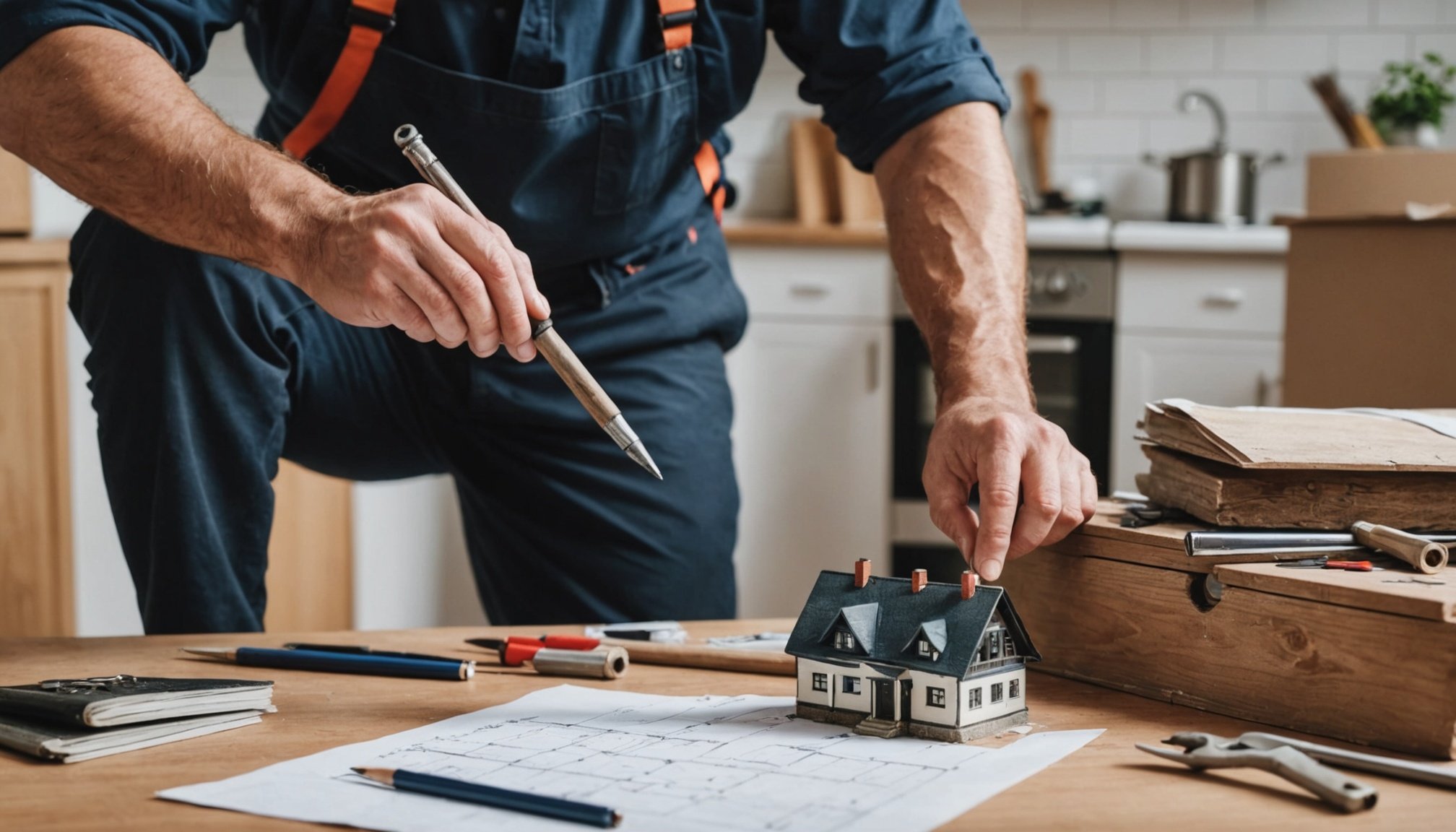Every UK homeowner dreads the sudden clatter of a leaking pipe or the eerie silence of a broken boiler. Unexpected home repairs can swiftly turn one’s financial landscape upside down, creating stress and urgency. With today’s economic climate, preparing yourself financially for these unforeseen events becomes not just a wise decision, but a necessity.
In this comprehensive guide, we will delve into various strategies to help you prepare financially for these potential disasters. By understanding the steps you can take now, you can face the future with confidence, knowing that you’re well-equipped to tackle whatever home repair challenges may come your way.
Also read : How can buyers assess the long-term value of a property in a changing economic climate in the UK?
Building a Home Repair Fund
Establishing a Dedicated Savings Account
One of the most effective ways to prepare for unexpected home repairs is by establishing a dedicated home repair fund. This is a specific savings account set aside exclusively for home maintenance and emergency repairs. By gradually building this fund, you ensure that when the unthinkable happens, your finances remain stable.
Setting a Realistic Savings Goal
When setting up a home repair fund, it’s crucial to establish a realistic goal. Consider your home’s age and condition, as these factors could contribute to potential repair costs. Experts often suggest saving 1-3% of your home’s value annually. This ensures you have enough to cover both minor repairs and major renovations.
Also to see : How can homeowners effectively leverage their home equity for future investments?
Automating Monthly Contributions
To maintain consistency, automate your monthly contributions to this fund. By scheduling regular transfers from your main account to the home repair fund, you eliminate the temptation to skip a month or two. This disciplined approach will steadily grow your fund over time.
Reassessing and Adjusting Your Fund as Needed
Regularly reassess your savings target to ensure it aligns with your home’s current needs and any changes in your financial situation. Life is dynamic, and adjustments might be necessary to keep your fund relevant and effective.
Gaining Peace of Mind
Having a dedicated fund provides peace of mind, knowing you’re financially prepared for unexpected home repairs. This foresight not only protects your financial wellbeing but also ensures your home remains a safe and comfortable place for you and your loved ones.
Understanding Insurance Coverage
The Importance of Home Insurance
Home insurance is a vital component of financial preparation for unexpected repairs. It acts as a safety net, covering many unforeseen expenses that could otherwise lead to substantial financial stress. Understanding your policy and ensuring it caters to your needs is crucial.
Evaluating Your Current Policy
Start by thoroughly evaluating your current home insurance policy. Understand the extent of coverage provided, specifically for emergency repairs and maintenance issues. Many policies cover structural damage, plumbing, and electrical systems, offering financial support when you need it most.
Identifying Gaps in Coverage
It’s important to identify any potential gaps in your current insurance coverage. For instance, some policies may not cover wear and tear or certain types of damage. By recognizing these limitations, you can seek additional coverage or alternative solutions to address these gaps.
Tailoring Your Policy to Fit Your Needs
Consider customizing your insurance policy to better suit your home’s unique needs. This might mean opting for combined building and contents insurance or adding specific riders for high-value items or additional risks such as flooding.
Reviewing Your Policy Annually
Given the ever-changing nature of the insurance market, it’s wise to review your policy annually. By doing so, you can ensure that your coverage remains comprehensive and competitive, providing the necessary protection for your home and finances.
Exploring Financial Assistance Options
When to Consider Loans or Credit
In some cases, even the best-laid plans may fall short, and you might find yourself needing extra financial assistance. Loans and credit can be viable options to cover significant repair costs, but they should be approached with caution.
Understanding Loan and Credit Options
Before taking out a loan or using credit, it’s essential to understand the terms associated with each option. Consider interest rates, repayment periods, and fees. Research different lenders to find the most favorable terms for your situation.
Government Assistance Programs
In the UK, several government programs offer financial assistance for homeowners facing unexpected repair costs. These initiatives can provide grants or low-interest loans, helping alleviate the financial burden of critical repairs. Look into programs like the Green Homes Grant or local council assistance.
Seeking Financial Advice
When considering financial assistance, consulting with a financial advisor can be beneficial. They can offer guidance tailored to your circumstances, helping you make informed decisions and avoid potential pitfalls.
The Importance of a Measured Approach
While loans and credit can provide immediate relief, they also increase your financial obligations. Carefully evaluate your ability to repay these debts without compromising your overall financial health. A measured approach ensures that you’re utilizing these resources responsibly.
Embracing Preventive Maintenance
The Role of Routine Maintenance
Preventive maintenance is a proactive strategy that can significantly reduce the likelihood of unexpected home repairs. By regularly maintaining your home, you can identify and address potential issues before they escalate into costly repairs.
Creating a Maintenance Schedule
Establish a maintenance schedule that covers all aspects of your home, from the roof to the basement. Routine checks and minor repairs can extend the lifespan of various home systems and components, saving you money in the long run.
Prioritizing Key Areas
While every home is unique, some common areas require consistent attention. Focus on systems like plumbing, electrical, and heating, which are prone to wear and tear. Regular inspections and timely repairs can prevent minor issues from becoming major problems.
Investing in Quality Repairs
When repairs are necessary, prioritize quality over cost. Investing in durable materials and skilled labor ensures that repairs are long-lasting and effective. Although initially more expensive, this approach can prevent recurrent issues and additional expenses.
Educating Yourself on Home Systems
Gain a basic understanding of your home’s systems. Knowledge empowers you to make informed decisions about maintenance and repairs, potentially saving you from unnecessary expenses. Resources like online tutorials and home maintenance books can be valuable tools.
The Financial Benefits of Prevention
Embracing preventive maintenance not only ensures the longevity of your home but also provides significant financial benefits. By minimizing unexpected repair costs, you can allocate more resources towards savings and other financial goals.
Preparing financially for unexpected home repairs and maintenance is an essential aspect of responsible homeownership in the UK. Through a combination of building a dedicated fund, understanding your insurance coverage, exploring financial assistance options, and embracing preventive maintenance, you can effectively safeguard your finances and home.
By adopting these strategies, homeowners not only prepare for potential emergencies but also cultivate a sense of financial stability and security. In doing so, they ensure their homes remain safe, comfortable, and well-maintained for years to come. Remember, the key is to take proactive steps today to mitigate the financial impact of tomorrow’s unexpected repair costs.











